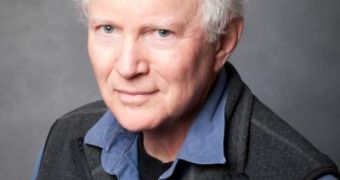Humans, as a society, evolved the tendency to play ever since they first began to come together in large groups. Peter Gray, a developmental psychologist at the Boston College, believes that this happened as people learned to suppress their innate aggressive instincts, which allowed them to form societies. Without an increased level of cooperation in the early days, society as we know it today wouldn't have existed. Traits such as the instinct for domination were also diminished when humans learned to live together, so that the whole society could benefit.
“Play and humor were not just means of adding fun to their lives. They were means of maintaining the band's existence – means of promoting actively the egalitarian attitude, intense sharing, and relative peacefulness for which hunter-gatherers are justly famous and upon which they depended for survival,” the psychologist said. A paper detailing the expert's new theory is published in the most recent edition of the American Journal of Play.
The reason why his theory has attracted so much attention is the fact that it has extensive implications on the way society nowadays is set on educating its youth. While playing eliminates traits such as greed, arrogance and competition, the current environment, which promotes competition as the only way to succeed in life, and also teaches individuals to be selfish to some extent, may actually be one of the root causes of the current economic downturn. “It may not be too much of a stretch to suggest that the selfish actions that led to the recent economic collapse are, in part, symptoms of a society that has forgotten how to play,” Gray added.
“People are beginning to realize that we have gone too far in the direction of teaching children to compete. We have been depriving children of the normal, noncompetitive forms of social play that are essential for developing a sense of equality, connectedness, and concern for others,” he also stated, explaining that parents, teachers and psychologists had become aware, over the past few years, of the growing stress children and teenagers were subjected to while growing up. These influences significantly affect the way in which they will live their lives afterwards.
“Even when children are playing nominally competitive games, such as pickup baseball or card games, there is usually relatively little concern for winning. Striving to do well, as individuals or teams, and helping others do well, is all part of the fun. It is the presence of adult supervisors and observers that pushes play in a competitive direction – and if it gets pushed too far in that direction it is no longer truly play,” the psychologist revealed.
“To play well, and to keep others interested in continuing to play with you, you must be able to see the world from the other players' points of view. Children and teenagers in hunter-gatherer cultures played in this way more or less constantly, and they developed into extraordinarily cooperative, egalitarian adults. My observations – published in previous articles – indicate that age-mixed free play in our culture, in those places where it can still be found, has all of these qualities,” Gray continued.
“Professor Gray's novel insight sheds new light on the question of how such societies can maintain social harmony and cooperation while emphasizing the autonomy of individuals. Conversely, his demonstration of the wide-ranging role of play in hunter-gatherer societies focuses attention on the importance of play in the evolutionary success of the human species,” Dartmouth College hunter-gatherer expert and leading anthropologist Kirk M. Endicott concluded.

 14 DAY TRIAL //
14 DAY TRIAL //